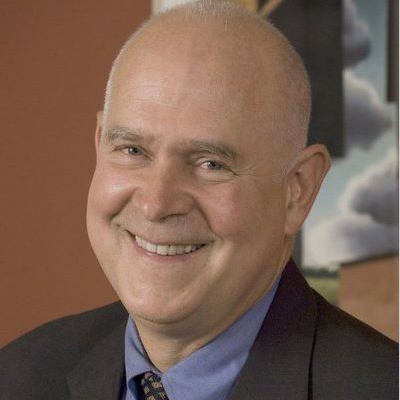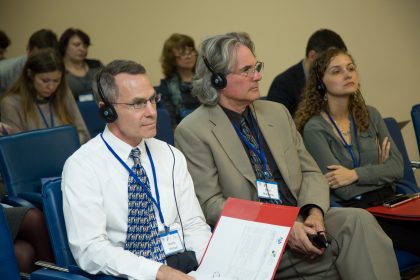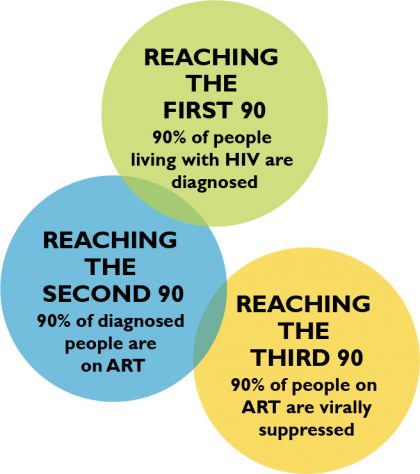I-TECH in Ukraine has worked to implement the Training System Monitoring and Reporting Tool (TrainSMART) via its partners, supporting adaptation of the tool per partners’ specifications and training stakeholders on its use since 2013.
Category: Technical Areas
Human Resources for Health in Ukraine
A key focus for I-TECH in Ukraine is strengthening the capacity of local partners to develop and deliver high-quality clinical trainings and expand the supply of skilled health care workers.
Workforce Development in Haiti
It is critical that health care providers receive the necessary training to empower them to improve patient outcomes CHARESS supports both pre-service and in-service training efforts in Haiti. In particular, CHARESS is a key partner of MSPP in maintaining its national clinical guidelines. Continue reading “Workforce Development in Haiti”
Health Information Systems
I-TECH’s Health Information Systems Team lies within the Health Systems Strengthening division. The team has significant capacity in the rapidly expanding field of Health Information Systems for resource-limited clinical settings. I-TECH develops and deploys systems and provides technical assistance and training on electronic medical records, laboratory information management, disease surveillance, national eHealth architecture design, national standards for data transfer and system interoperability, and data use for improved clinical service delivery.
Program Highlights
Nancy Puttkammer

Nancy Puttkammer is an Acting Assistant Professor within the Department of Global Health at University of Washington and is the faculty co-lead of the Digital Initiatives Group at I-TECH (DIGI). Her interests are in strengthening health information systems and promoting data use and for quality improvement of health programs in resource-limited settings. She is trained as a health services researcher, specializing in using observational, routinely-collected data from electronic medical records (EMRs) to strengthen HIV care and treatment programs.
In her capacity as a Research and Evaluation Advisor at the International Training and Education Center for Health, Dr. Puttkammer works with informatics and training projects in Haiti, Kenya, and South Africa to improve large-scale implementation of EMRs, evaluate data quality and data use, support data analyses, and develop capacity for data use and implementation science research among colleagues and counterparts. Dr. Puttkammer has a PhD in Health Services from the University of Washington and an MPH in Community Health Education from the University of California, Berkeley.
Program Highlights
Scott Barnhart

Scott Barnhart, MD, MPH, has an extensive background as Professor of Global Health and former Director of Global Health Programs for I-TECH at the University of Washington. He has had responsibility for leading nine country offices, projects in 14 countries, and more than 500 staff. This experience and training has included extensive clinical work, research and program management in pulmonary and environmental and occupational medicine, and more than eight years as Medical Director of a safety net/Level 1 Trauma Center hospital.
Ensuring health systems can quickly detect and respond to emerging health threats is a critical challenge in both domestic and global health. Dr. Barnhart’s major implementation projects include scale-up of voluntary medical male circumcision (VMMC) in Zimbabwe and Malawi, OpenMRS, and laboratory information systems. Dr. Barnhart deploys his expertise in multiple African countries and Haiti to strengthen health systems and health care.
A goal of Dr. Barnhart’s work is to promote country-led, country owned sustainable development. Consistent with the principles of the Paris Declaration, the goal is to transition the bulk of development work and the associated leadership, ownership, technical direction and control of funding into the countries where development occurs. This approach ensures that the entire continuum of skills necessary for development (technical expertise, administration (human resources, operations, and management and accountability for funds) is transitioned to local partners. A key indicator is to have 75% or more of a grant’s funding expended in-country on local programs and local citizens and to support the local economies in these highly resourced constrained countries. Dr. Barnhart has worked closely to advance this model through projects in Haiti with a goal to shift the majority of a project to a local organization and in Zimbabwe where the VMMC program is largely run through local partners.
Program Highlights
Health Information Systems in Haiti
Electronic medical record (EMR) systems have the capacity to improve clinical decision making and quality of care at site level but can also be leveraged to make data-driven, population-level public health decisions. At the request of the MSPP Continue reading “Health Information Systems in Haiti”
Continuous Quality Improvement in Haiti
In partnership with CDC, CHARESS helps the Haitian MSPP to implement the national care improvement program, HealthQual, by training providers on quality improvement concepts and using data from the EMR, iSanté, for clinical decision making and improved care. Continue reading “Continuous Quality Improvement in Haiti”
Clinical Mentoring in Haiti
I-TECH introduced its clinical mentoring program in Haiti in 2006. A team of physicians, nurses, and psychologists provide technical assistance to 20 sites in the MSPP care and services network to help strengthen HIV- and AIDS-related services. During site visits, CHARESS mentors conduct clinical rounds Continue reading “Clinical Mentoring in Haiti”
I-TECH Ukraine Conducts ARVs for Epidemic Control Workshop

In early April, the International Training and Education Center for Health (I-TECH) conducted a five-day workshop on “Antiretroviral Drugs for Epidemic Control” for more than 50 chief doctors and deputy chief doctors from Regional AIDS Centers in Ukraine.
Workshop participants learned about evidence-based, international best clinical practices and the cost-effectiveness of strategies for using antiretroviral therapy (ART) to control HIV epidemics. International keynote speakers included:
- Dr. Jeremy Penner, International Clinical Advisor in Ukraine to I-TECH/University of Washington (UW);
- Dr. Elliot Marseille, Consultant to I-TECH/UW and the Center for Global Surgical Studies at the University of California, San Francisco;
- Dr. Michael Martin, U.S. Centers for Disease Control and Prevention (CDC) Senior Technical Advisor for HIV/AIDS care and treatment in Thailand; and
- Dr. Juliana de Fatima da Silva, Epidemic Intelligence Service Officer at the CDC.
The pool of facilitators also included nine national experts from the Ministry of Health’s Center of Public Health (CPH).
 The workshop aimed to support the development of efficient strategies to achieve the UNAIDS 90-90-90 goals: 90% of HIV-positive people know their status, 90% of those are on treatment, and 90% of those are virally suppressed. To this end, the workshop covered national situational analysis, national clinical recommendations, and service delivery models with the highest potential for adaption in country.
The workshop aimed to support the development of efficient strategies to achieve the UNAIDS 90-90-90 goals: 90% of HIV-positive people know their status, 90% of those are on treatment, and 90% of those are virally suppressed. To this end, the workshop covered national situational analysis, national clinical recommendations, and service delivery models with the highest potential for adaption in country.
Progress on ART optimization in Ukraine was shared, and participants were able to discuss their experiences and ideas for improving HIV-related services. The presentations and group discussions were particularly timely, given the development of complex new HIV clinical guidelines currently under way in Ukraine – they also provided much needed evidence to support this process.
Similar workshops were requested by the CPH and leaders of the Regional AIDS Centers, and I-TECH plans to meet this request by conducting two workshops in June and September 2017.